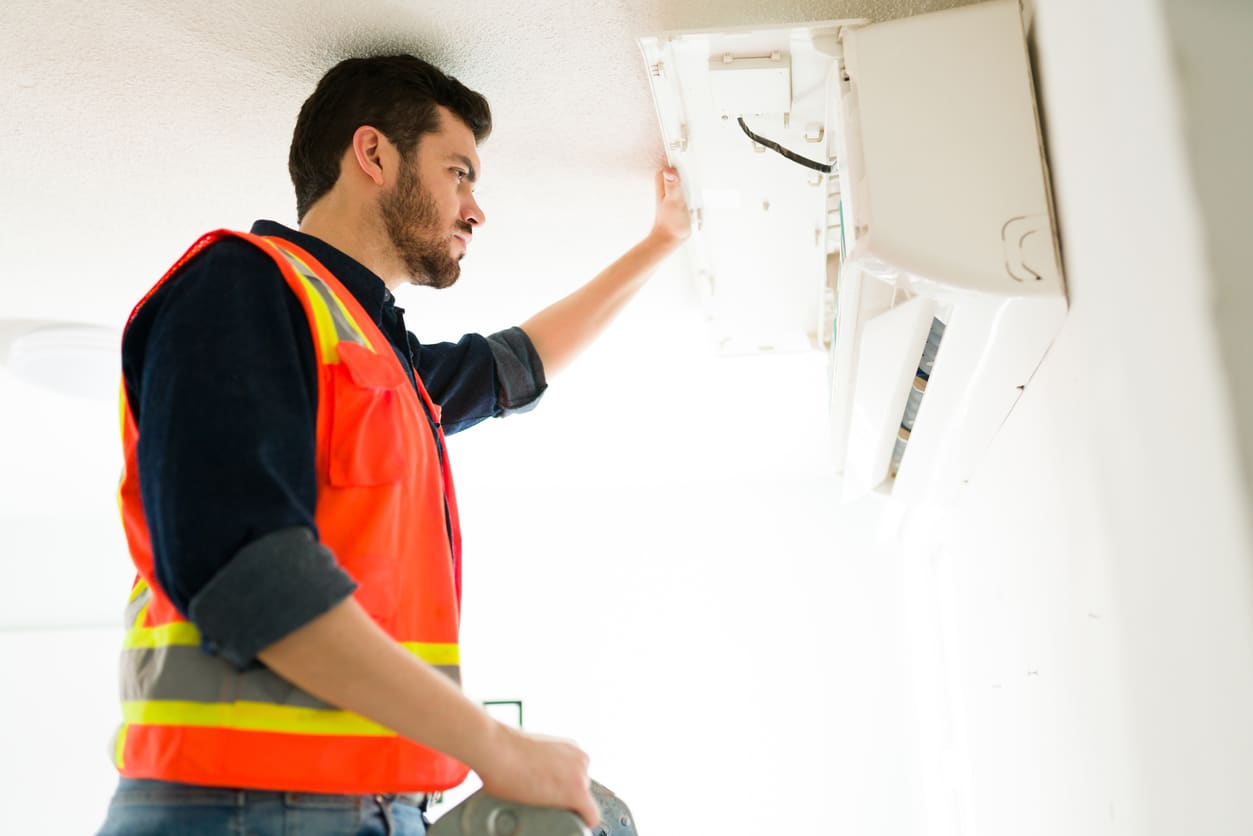When it comes to keeping your home comfortable, you have a few different options. One common choice is a furnace, which heats your home using hot air. Another option is an air conditioner, which cools your home by removing warm air. So what’s the difference between a furnace and an air conditioner? Keep reading to find out!
Features: A furnace heats a home by blowing hot air throughout the premises. This is usually done with gas or oil, which can be difficult to control. Two types of furnaces are forced air and hot water. A furnace may have one or more heating units for controlling temperatures throughout the home.
An air conditioner is a machine that removes heat from an area to keep it cool. Air conditioners commonly use chemicals such as Freon for the cooling process. There can be one or more cooling units attached to a single system.
Cost to operate: Furnaces are usually less expensive to operate than air conditioners, which use coolants that need to be replaced periodically. Furnaces also do not require much maintenance so regular inspections are not necessary.
Air conditioning systems, on the other hand, typically cost more to run than furnaces due to the regular replacement of coolants. There is also the added cost of regular maintenance and repairs.
Amount of noise: The noise a furnace makes depends on the age, type, and condition of your system, but they are generally quieter than air conditioning units. However, an inefficient furnace can make a lot more noise while attempting to produce heat.
Air conditioning units are typically the loudest appliances in a home during operation. However, they generally make less noise at night when the system is not running than furnaces do during their operating cycle.
Outdoor unit size: The outdoor unit for a furnace typically ranges from 30 to 80 percent of the home’s total BTU needs. Exact amounts depend on the size of the home, their insulation level, and climates. The size of the outdoor unit for an air conditioner is typically measured in tons, which are equivalent to 12,000 BTU/h.
Outdoor location: Most furnaces are installed on the exterior side of a home’s outer wall so they can transfer heat indoors. Air conditioning units are typically located within the home’s interior since they are designed to remove heat from an area, not transfer it.
Winter efficiency: When furnaces are turned on, chemical-based coolants used in air conditioners begin to warm up and evaporate into gas that produces heat. This gas then returns to a liquid state in a cooling unit before it is reused. This process means your air conditioner will not be heating your home during the summer months, so furnace efficiency in winter is higher.
Longest BTU range: The amount of BTUs required to heat a structure varies depending on factors such as climate, insulation level, and size. The largest single-zone heating system needs 30 to 80 percent of the home’s total BTU capacity, while multi-zone systems can range anywhere from 15 to 70 percent. The longest BTU ranges are for air conditioners, which need between one and five tons of cooling power.
Longevity: Since furnaces are used less often than air conditioners they usually last longer. A furnace is also made up of more durable components, which means it will typically last longer. However, most replacement costs come from the installation process for both appliances rather than the actual lifespan of the unit.
Maintenance: Furnaces need regular maintenance to work properly. This includes cleaning the main components, inspecting and tuning parts, and checking ductwork for leaks. Air conditioners need regular inspections as well, but they are less complicated so maintenance is not as extensive. The cost to maintain an air conditioner typically costs between $60 and $100 per unit each year, depending on how often it needs servicing.
Odor: If a furnace begins to smell it is a sign that something is wrong. Common problems include a buildup of dust and carbon monoxide-producing products, which means dirt or gas has entered the system. Furnace odors can be dangerous to your health, so they should be looked at immediately by a professional if you notice them.
Air conditioning units often emit a small amount of moisture during operation, which can lead to the growth of mold or mildew if left unchecked. They also produce carbon monoxide but not nearly as much as furnaces do.
Pollutants: Furnaces are responsible for producing more pollutants than air conditioners. However, only oil and gas burning furnaces produce significant amounts of sulfur dioxide and nitrogen oxide, which are the key ingredients in acid rain. Many air conditioners make use of a Freon coolant that can cause damage to the ozone layer if it enters the atmosphere as a gas.
Which system should you install?
A professional can help you determine whether a furnace or an air conditioner would be best for your home. Furnaces usually cost less to install and maintain, but air conditioners offer greater comfort. If you need both heating and cooling, a heat pump system provides both heating and cooling capabilities.




